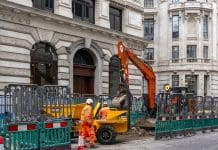The gradual reopening of the arts and entertainment sectors has prompted a collaboration aimed at ensuring disabled people are not left behind in the planning and delivery of measures to overcome the impact of Covid-19
The Seven Inclusive Principles for arts and cultural organisations offer practical guidance to arts and cultural organisations to support disabled artists, audiences, visitors, participants and employees.
They are endorsed by bodies including the Arts Council, the National Lottery and the Museums Association and have been created by campaigning cultural organisations #We Shall Not Be Removed, Ramps on the Moon, Attitude is Everything, Paraorchestra and What Next?
The principles apply across all art forms and all four nations of the UK and reflect a comprehensive approach which has been welcomed across the board.
Promoting an inclusive cultural recovery
Andrew Miller, UK Government Disability Champion for Arts and Culture and co-founder of #WeShallNotBeRemoved, said: “Disabled people’s continued participation in culture at all levels has been severely threatened by this pandemic.
“The Seven Principles offer an essential new resource to promote an inclusive cultural recovery and to ensure the UK remains a global leader in disability and inclusive arts through and after Covid-19.”
At About Access, our work covers a wide range of premises and business sectors, many of which are used for arts and entertainment including indoor and outdoor arenas, theatres, museums and galleries and heritage sites.
We note that many of the measures listed in the document should be in place anyway, such as accessible evacuation procedures and provision of nearby Blue Badge parking or drop-off arrangements, but we certainly wouldn’t argue against a policy of reviewing them in times of great disruption.
Other adjustments are clearly appropriate including more thorough and frequent cleaning of accessible WCs, provision for suitable gaps for wheelchair users as part of social distancing, offering accessible options for booking tickets and giving priority to disabled customers with queue management.
Examples which we will all now be familiar with include not placing a hand sanitiser dispenser where it might present an obstacle, such as in the middle of an aisle. And don’t have one that is operated by foot – it’s no help to someone who uses a wheelchair.
It is important to recognise that risk assessment is usually a decision disabled people will make for themselves and to enable them to do that clear, accurate and comprehensive information about Covid-19 measures should be provided, whether communicated in print, online or in person.
Consulting disabled people
The principles require that disabled people should be consulted early, when organisations develop bespoke operating or re-opening plans. The customer journey for disabled audiences and visitors should be thoroughly mapped and Equality Impact Assessments should be completed before decisions are made.
For example, some disabled people may find it difficult to ensure that others are social distancing and may therefore need to attend events with a companion.
Top of the list of principles is the need to comply with the requirements of the Equality Act 2010 in making any changes, and with the Social Model of Disability with the aim of combating and eliminating ableism. But the document is also alert to the compelling business argument.
It quotes the assessment by the disability charity Scope that the annual spending power of disabled people and their households and companions is £274bn and that disabled people comprised 12% of the national audience in 2018–19.
The importance of taking steps to bring disabled audiences back to arts and entertainment is highlighted by a survey from Indigo Consulting which found that 77% of disabled audiences consider themselves to be vulnerable to Covid-19 compared to only 28% of non-disabled audiences.
A quarter of disabled audiences said they would not consider returning to venues at all until a vaccine is in place but 41% would consider it if social distancing and hygiene measures are put in place.
In addition to identifying a slump in confidence among disabled people which may significantly reduce their attendance at public events, the document underlines the importance of giving disabled artists and practitioners flexibility with their working conditions.
It also highlights the need to protect the disabled workforce, with Citizens Advice reporting that one in four disabled people who are currently in work now face redundancy as a result of Covid-19.
Central to getting it right is the need to consult with the people who are the experts in this field, starting with disabled people themselves.
The document says: “Experienced, professional disability consultants should be engaged as well as seeking input from disabled users and audience members.”
The document Seven Inclusive Principles for Arts and Cultural Organisations, which includes links to further reading and reports, can be downloaded from the resources section of www.attitudeiseverything.org.uk
Ian Streets
Managing director
About Access
Tel: +44 (0)1482 651101













